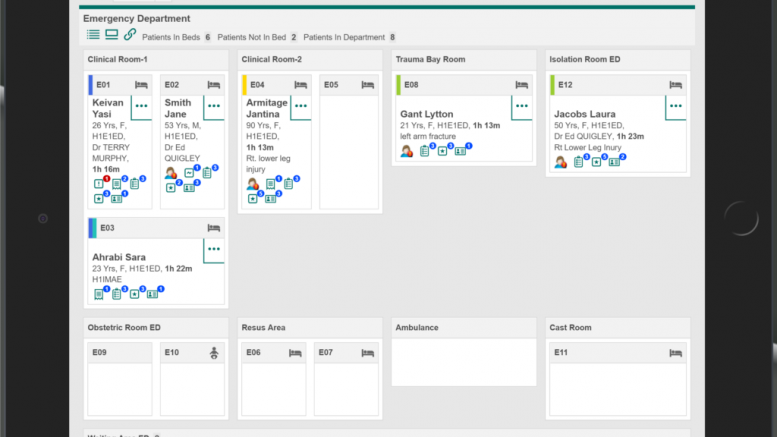InterSystems has announced the latest release of their InterSystems TrakCare®, which extends the mobile-enabled user interface introduced in 2018 to all clinical workflows, improving the user experience wherever care is delivered. New mobile functionality includes support for operating theater bookings and administration, maternity, and nursing care plans, and delivers dynamic patient lists, a patient journey tracker, and additional graphing capabilities.
What’s more, the company announced today that it has built this newest version of TrakCare on its new InterSystems IRIS for Health data platform, which boosts systems interoperability, cloud scalability, and healthcare big data capabilities.
“Data volumes are growing faster in healthcare than any other industry, and the move to IRIS for Health ensures that TrakCare is more interoperable, faster, and more scalable than ever,” said Christine Chapman, Vice President for TrakCare at InterSystems. “In addition to traditional interoperability standards like HL7 and SDA, we can now operate through FHIR standards.”
IRIS for Health is the only data platform engineered specifically for healthcare. It combines high-performance analytical and transaction processing, cloud scalability, and native interoperability for all data types. Basing TrakCare on the InterSystems IRIS for Health platform will enable future releases of TrakCare to better integrate, analyze and act on new sources of healthcare data – no matter how large – and to share electronic medical record (EMR) data more effectively.
InterSystems is also ready to engage with TrakCare customers looking to develop or deploy solutions based on the SMART on FHIR standard. “We view SMART on FHIR as critical in enabling organizations to innovate by enhancing the TrakCare experience and taking full advantage of their EMR data,” said Dimitri Fane, Director of Product Management for TrakCare.
As functional capabilities, data volumes and processing requirements grow, TrakCare on IRIS allows healthcare providers to easily scale and upgrade their systems. IRIS for Health supports vastly increased capacities with features like sharding, distributing data across multiple cloud-based servers to provide flexible, inexpensive performance scaling.





